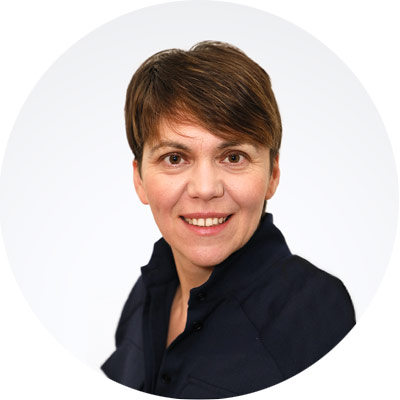Self-employment
Self-employed: taxes in Switzerland.
Paying taxes is a major part of self-employment.
If you are self-employed, you have to manage your taxes. But what taxes do you have to pay? How much tax do you have to pay? What can you deduct? This blog post contains tax tips for self-employment in Switzerland.
How much tax do you have to pay?
As a sole trader, you have to take income tax into account. Income tax is primarily based on the following factors:
- Amount earned
- Cantonal tax rate
- Valid deductions
Capital gains or income from sales, such as from furniture belonging to the business, also count towards your income.
We have collected the most important information on taxes and duties for self-employment in the following post.
Self-employment and taxation
The company’s registered office will determine what cantonal tax you have to pay. Your registered office can differ from your address as a private individual. You can find additional information on applicable tax rates on each canton’s website. You can deduct expenses incurred during business activities from your taxable income. Valid deductions have a direct influence on how much tax you have to pay.
If you earn over 100,000 francs per year, you are required to pay VAT. You can find more information and an online registration form at admin.ch.
You will also have to make social insurance contributions. In Switzerland, self-employed individuals must make AHV/IV/EO contributions. The amount you have to pay will depend on how much you earn. In 2024, the maximum contribution is 10% of your earned income.
Wealth taxes are not as important as income tax because they are not as high. Despite this, all types of businesses are required to pay income tax and wealth tax. The cantons determine how much wealth tax you will have to pay.
Sole traders make up the majority of individuals engaged in self-employment. In the early stages of self-employment, most people simply start out as sole traders. But other options are available. Taxation is regulated differently depending on the type of company.
Partnership (Personengesellschaft)
This includes sole traders, general partnerships and limited partnerships.
Partnerships pay direct federal taxes based on their income.
They are also subject to cantonal income and wealth taxes.
Corporations
This includes companies limited by shares and limited liability companies.
Corporations pay direct federal taxes based on their profits.
They are also subject to cantonal profit and capital tax.
The various types of companies have different advantages and disadvantages associated with them, including when it comes to taxes. Here, too, it is important to note that there are different tax rates in each canton. If you want a more detailed understanding of the taxes you will be subject to, we recommend consulting an accountant.
In summary, this means:
- Income tax is the most important factor. VAT only has to be paid once you start earning 100,000 francs or more.
- As a self-employed individual, you are responsible for your social insurance contributions, and you should include these in your financial planning.
- You can deduct expenses from your taxable income, and this is an important factor for reducing the amount of tax you will have to pay.
Deductible amounts for self-employed individuals
What can I deduct from my taxable income? You can deduct all of the costs of your business activities and social insurance contributions from your income from self-employment. These are costs that, if you were an employee, would be paid by your employer. A variety of costs and expenses can be deducted from your taxable income. This will lower your tax bill.
Among other things, you can deduct:
- All costs necessary for your business or profession
- Depreciations and reserves
- Payments into provident schemes, such as private pensions or pension funds
- Interest on debts carried by the business, such as mortgages or loans
- Professional education and training
There are rules that apply to depreciations and reserves, as well as to building up reserves to pay for expected expenses.
There are also special rules for married partners that are both self-employed. In this case, it is possible to take advantage of additional tax benefits.
In addition to deductible expenses, the way your salaries are paid will also have an effect on taxes for sole traders. Paying yourself a salary increases your taxes as a private individual, but reduces taxable income for your business. Because tax rates are much higher for those with a high income, it is worth adjusting your salary payments. In other words: pay yourself a lower salary during times when the business is not earning as much, and pay yourself a higher salary when it is earning more.
Pillar 3a or pension fund?
Self-employed individuals can deduct both qualified provident insurance in pillar 3a and pension fund contributions from their taxable gross income. The taxable income and the taxes will then be lower. These deductions are subject to maximum allowable amounts. These are as follows in 2025:
- Pillar 3a without a pension fund: up to 20% of income earned can be paid into pillar 3a, however only 36,288 francs can be deducted from your gross income per year if you do not have a provident scheme from pillar 2.
- Pillar 3a and simultaneously paying into a pension fund: only 7,258 francs per year can be deducted for pillar 3a. But contributions to pillar 2 can be deducted.
Using a pension fund is generally a good idea as an additional provision if your income is high, because in this case you can deduct more than 20% of your earned income. That means you can deduct more than you could for pillar 3a. You can discuss additional factors with our pension experts in order to find a pension solution that works for you.
What do I have to consider when completing my tax return?
If you are a gainfully employed person in self-employment, you are only required to use single-entry bookkeeping. You have to keep a record of income and expenditure, as well as any assets. Additional requirements only apply starting at a turnover of 500,000 francs per year.
You have to file your tax return in the canton in which your business is located. As you will be registered as a gainfully employed person in self-employment, you will receive a request to fill out your tax return in good time.
In addition to documents regarding your income, expenses and assets, you should:
- List private and business assets separately
- List private and business expenses separately
The relevant positions, such as earnings and expenditures, can then be submitted as an online tax return to the relevant canton.
A fiduciary can complete your tax return efficiently and note any potential for optimisation.
What do I need to take into account in terms of insurance?
Taxes, pension and insurance are closely connected. They ensure your business remains sustainable and is protected. If there is a close link between individual insurance policies and operational costs, it may be possible to deduct them from your taxes. Possible deductions include:
- Professional liability
- Public liability insurance
- Supplements to health insurance and accident insurance related to your profession
The most important insurance policies for self-employment are:
- Liability (including professional liability, which may be required depending on the industry you work in)
- Legal protection
- Accident and daily sickness allowance
- Death
- Loss of earning capacity
These insurance policies will be more or less important depending on whether or not you employ other people, and how you wish to protect your family financially.
The best insurance solution is one that suits you and your goals. We’ll be happy to help you select the insurance that offers you optimal protection.
The five most important tax tips
What you should know as a gainfully employed person in self-employment:
- Get information on your canton. Income tax and cantonal regulations determine what taxes you will have to pay.
- Optimise your taxes with deductions. Claiming valid deductions is the way to optimise your taxes. This will require some careful accounting, as depreciations and reserves can make a big difference.
- Think about your pension. Social insurance contributions, in particular for pillar 3a, will significantly impact the amount you can deduct. However, social insurance contributions should also be taken into account as expenses during financial planning.
- Tax return. Separate your business and private lives when reporting assets and expenses. This will keep things simple when documenting earnings, expenditure and assets.
- Protection. Sustainable business practices involve protecting employees, family and yourself. Having the right protection will help.
Suitable insurance products









 Contact
Contact
 Find an agency
Find an agency









 Close
Close





